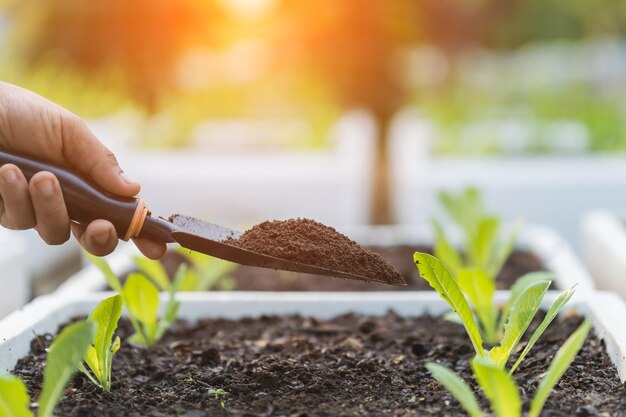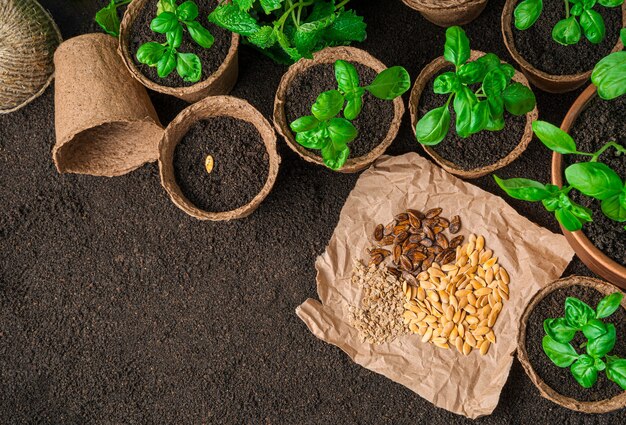Agriculture is evolving rapidly, moving toward methods that nurture the planet instead of harming it. Farmers today are increasingly aware that long-term productivity depends on healthy soil, clean water, and balanced ecosystems. As a result, biobased innovations solutions drawn from nature and enhanced by science are transforming how we grow food. These eco-friendly methods not only support sustainable farming but also make it easier to balance productivity with environmental care. Biobased solutions are proving that agriculture can thrive responsibly while maintaining soil fertility and ecological harmony for generations to come.
Rise of Biobased Inputs
One of the most impactful advancements in sustainable farming has been the shift toward natural agricultural inputs. Products like bio fertilizer for plants are helping farmers enhance soil quality and crop yield without relying heavily on chemicals. These fertilizers use living microorganisms to promote nutrient availability, strengthen roots, and restore soil vitality. Unlike synthetic fertilizers that degrade the land over time, bio-based inputs create a self-sustaining soil ecosystem. They reduce pollution, prevent nutrient leaching, and make agriculture more efficient while staying environmentally responsible.

Building Healthy Soil
Soil is the foundation of all farming, and its health determines the success of every harvest. Traditional chemical fertilizers often damage the soil’s structure and microbial diversity, leading to long-term degradation. In contrast, biobased products improve soil texture, boost organic matter, and encourage beneficial microorganisms. Farmers who aim to boost soil quality can benefit greatly from integrating these natural amendments into their practices. Over time, this natural enrichment leads to improved aeration, moisture retention, and resistance to erosion. Healthy soil ensures consistent yields, reduces the need for excessive inputs, and secures sustainability for future cultivation.
Reducing Environmental Damage
Conventional agricultural practices have long been linked to pollution, greenhouse gas emissions, and water contamination. Biobased solutions address these challenges by offering cleaner, biodegradable alternatives. Their natural composition minimizes the risk of chemical runoff into rivers and groundwater. Additionally, these products require less energy to produce compared to synthetic fertilizers, thus lowering the carbon footprint of farming. As climate change continues to impact global food systems, adopting eco-conscious methods becomes essential. By reducing dependency on harmful inputs, biobased agriculture ensures that growth does not come at the cost of the environment.
Naturally Enhancing Yields
While sustainability is vital, productivity remains a priority for every farmer. Biobased agricultural inputs enhance plant health from within, improving resilience against drought, pests, and diseases. They promote balanced nutrient uptake and stimulate root development, resulting in higher-quality crops. Over time, farmers observe stable yields and better soil fertility, which ensures consistent income. This natural approach replaces the boom-and-bust cycles caused by chemical overuse with steady, sustainable productivity. By nourishing both the plant and its growing medium, biobased methods create harmony between profit and planet.
Supporting Small Farmers
Small and medium-scale farmers play a vital role in global food production, yet they often face challenges with high input costs. Biobased farming offers them an affordable and accessible path toward sustainability. Many of these inputs can be locally produced from organic waste, compost, or plant residues, reducing dependency on expensive imported chemicals. Farmers can even create their own formulations, promoting a circular economy within their communities. Exploring initiatives and marketplaces like Visit No. 9 Millerton showcases how localized sustainability can drive innovation and empower small producers. This approach builds resilience, lowers costs, and empowers local farmers to adopt practices that benefit both their land and livelihood.

Preserving Biodiversity Balance
Healthy ecosystems thrive on biodiversity, and biobased agriculture works to protect this natural balance. Chemical-heavy farming often disrupts beneficial insect populations, soil organisms, and natural pest predators. In contrast, biobased methods foster a living soil environment where multiple species coexist harmoniously. Pollinators such as bees, butterflies, and other insects flourish, improving crop yields naturally. This preservation of biodiversity also enhances the farm’s resilience against pests and environmental changes. The result is a stable, self-regulating system where life supports life exactly as nature intended.
Blending Tech and Nature
Modern technology has amplified the potential of natural farming practices. With tools like AI-based soil testing, drone imaging, and smart irrigation systems, farmers can now apply biobased inputs with precision. This combination of digital tools and organic methods ensures maximum efficiency and minimal waste. Technology helps monitor soil health, nutrient levels, and moisture in real time, allowing for timely interventions. Exploring lifestyle topic highlights can inspire how different industries, including agriculture, are adapting innovation to build greener futures. The synergy between data and biology creates smarter, cleaner agriculture that meets global food demands sustainably. It’s a perfect example of innovation serving both science and nature.
Educating Future Farmers
The successful adoption of biobased farming depends on awareness and education. Many farmers remain unfamiliar with the benefits of natural inputs compared to conventional methods. Training programs, agricultural workshops, and digital learning platforms can bridge this gap. When farmers understand how biobased products improve soil fertility, reduce costs, and ensure long-term yield stability, they’re more likely to embrace them. Educating rural communities not only drives adoption but also strengthens the movement toward sustainable agriculture worldwide. Knowledge becomes the seed that nurtures a greener, smarter future for farming.
Conclusion
Biobased agricultural solutions represent a powerful shift toward balance, efficiency, and environmental care. They allow farmers to produce more with less harm building healthy soil, supporting biodiversity, and reducing pollution. From bio fertilizer for plants to eco-friendly pest controls, these innovations are reshaping the future of farming. By embracing nature-based science, agriculture can continue to feed the world while preserving the planet’s most essential resources. Eco-conscious agriculture isn’t just a goal it’s the path forward to ensure that progress and sustainability grow hand in hand.




